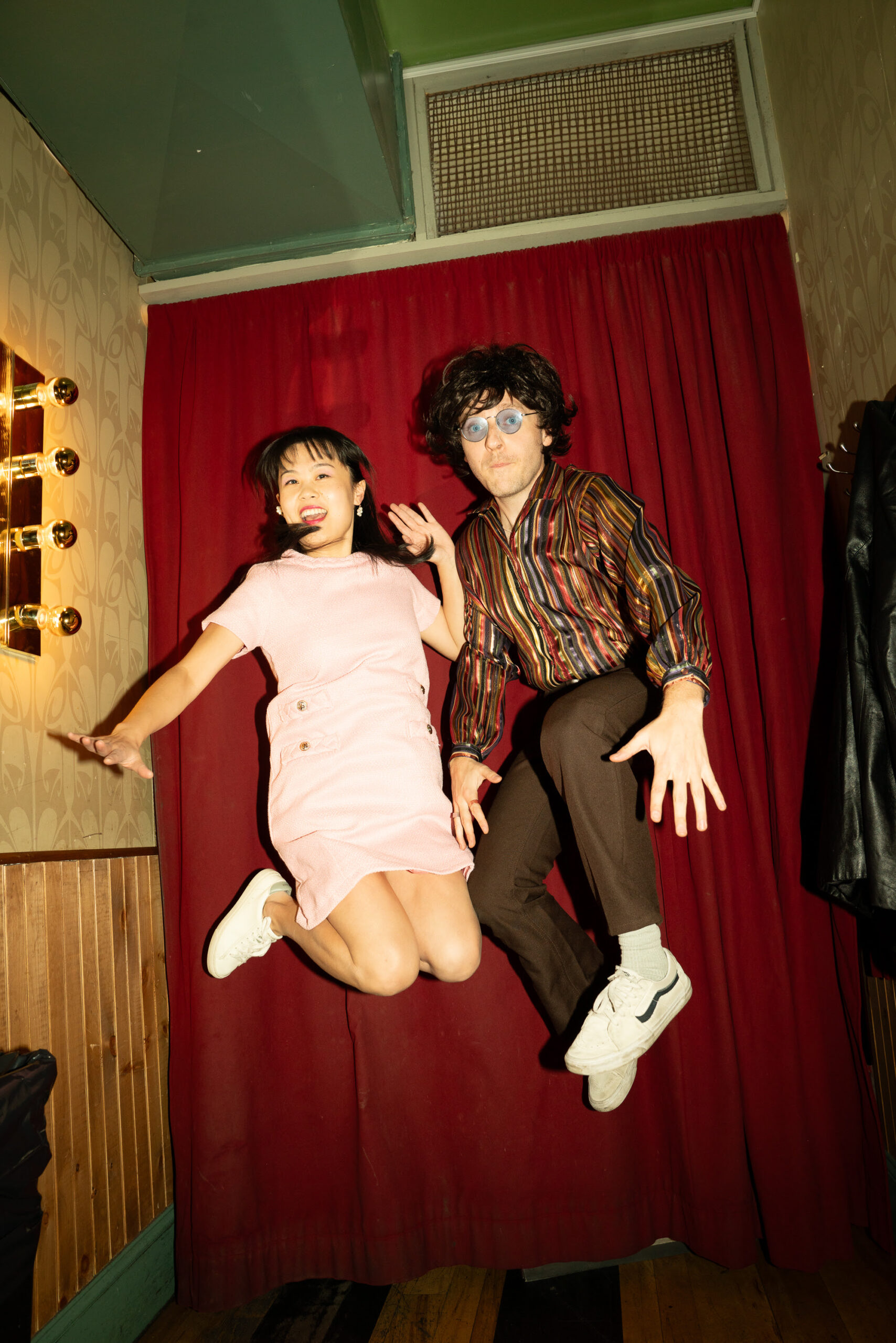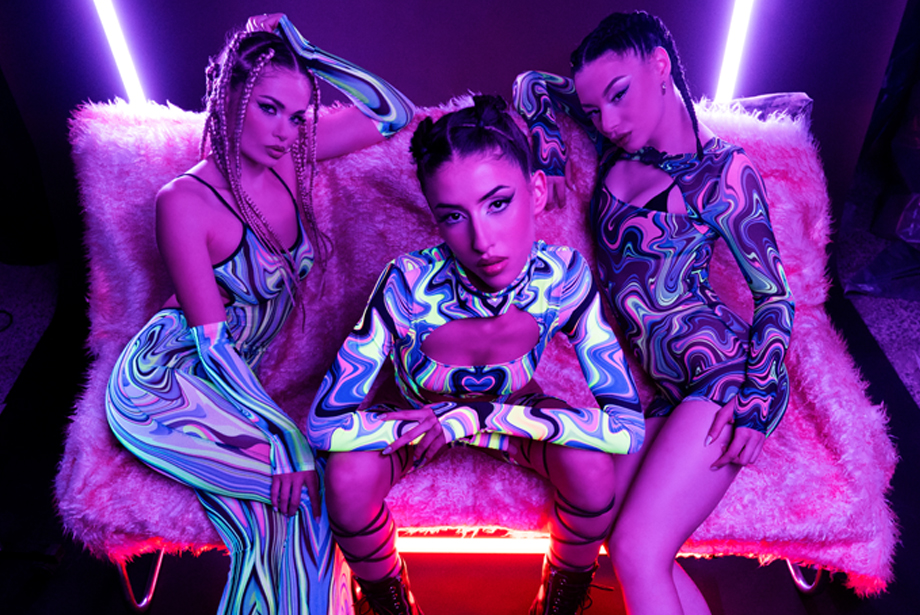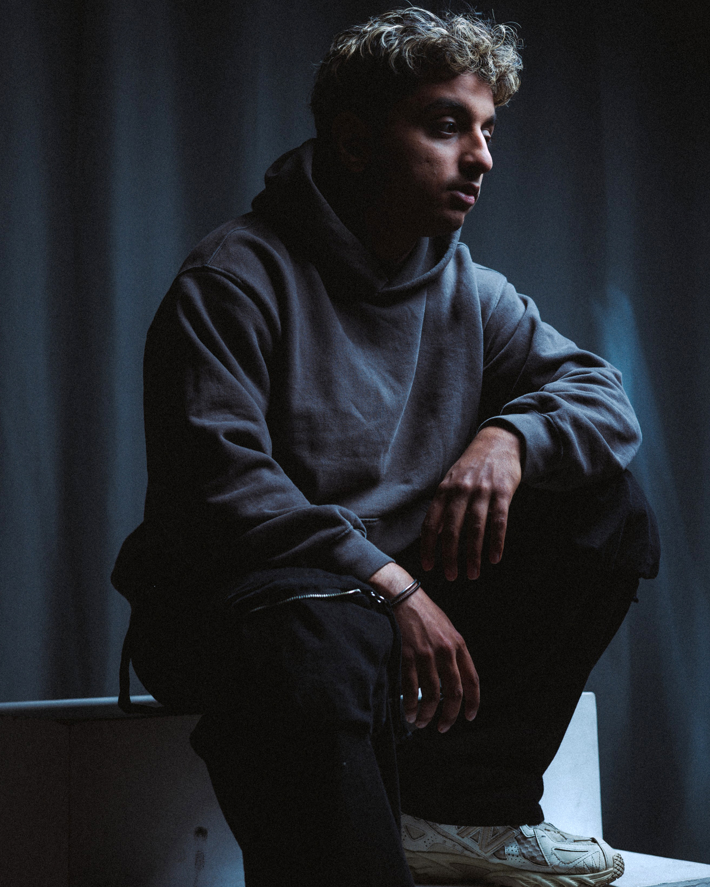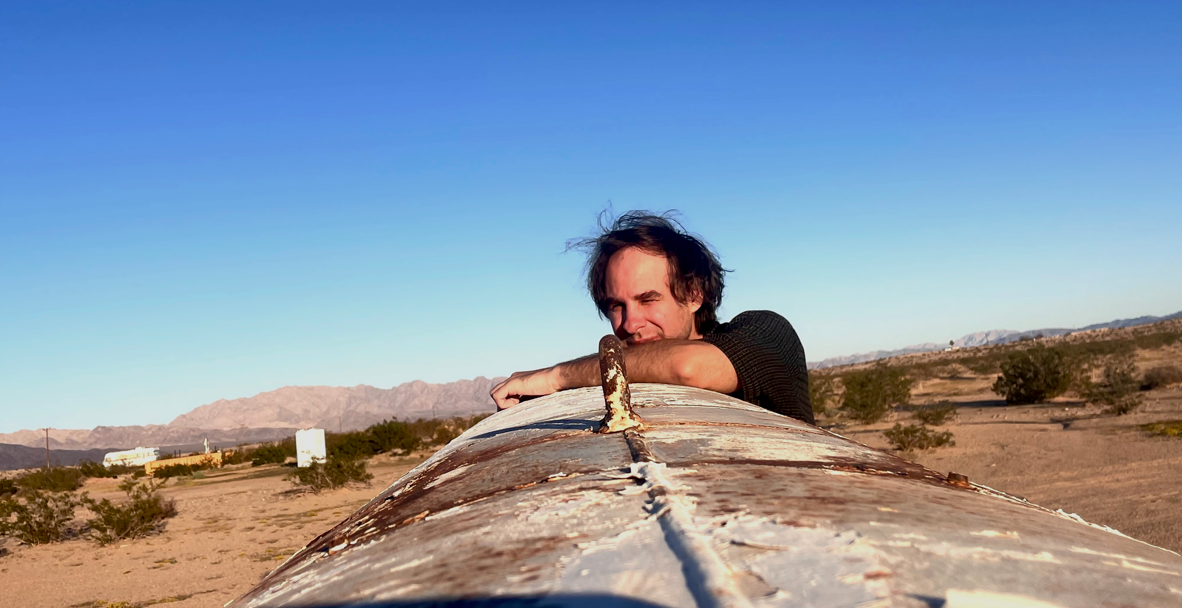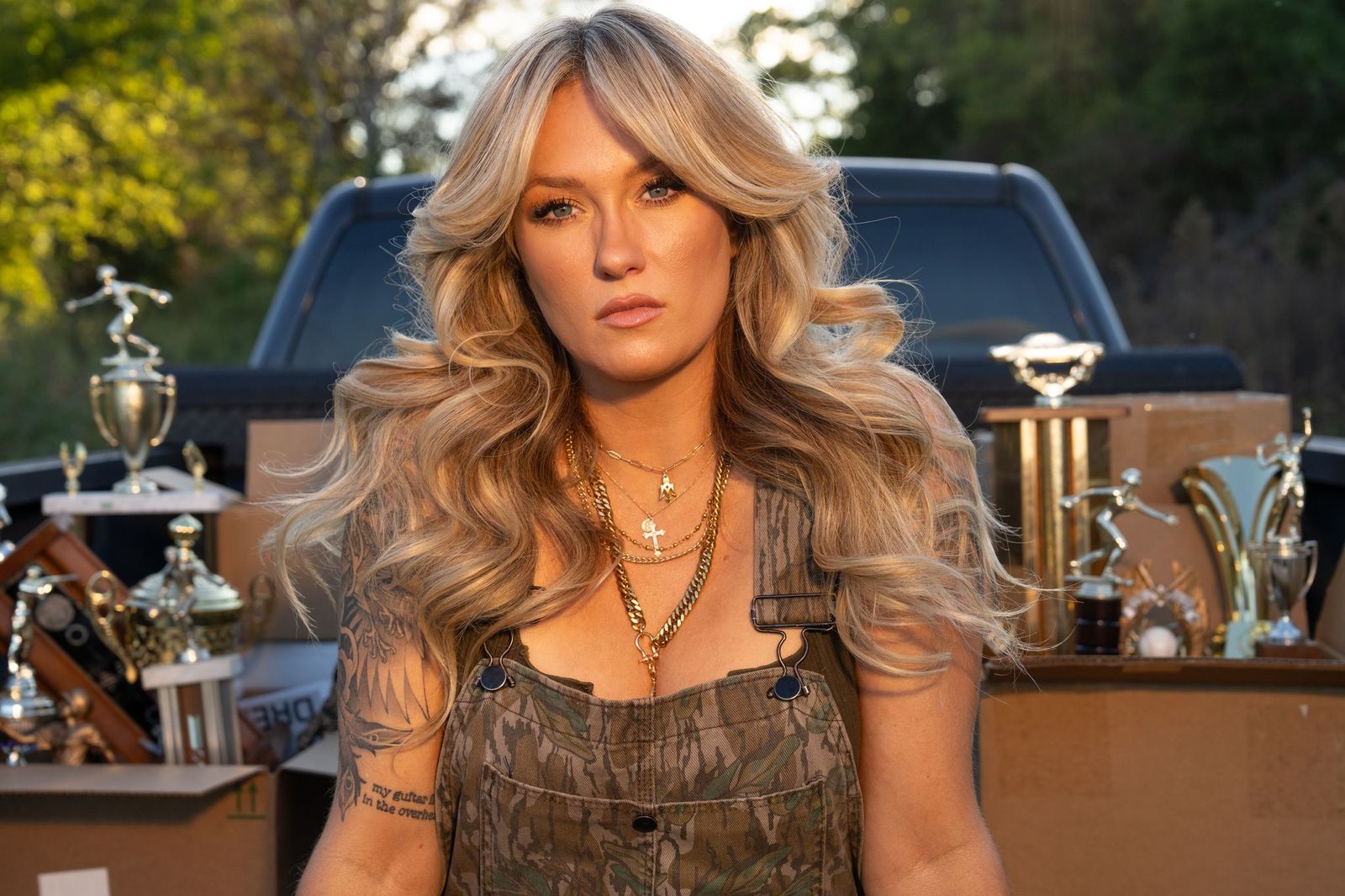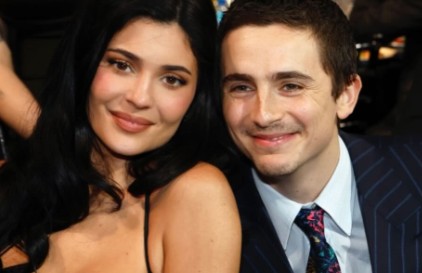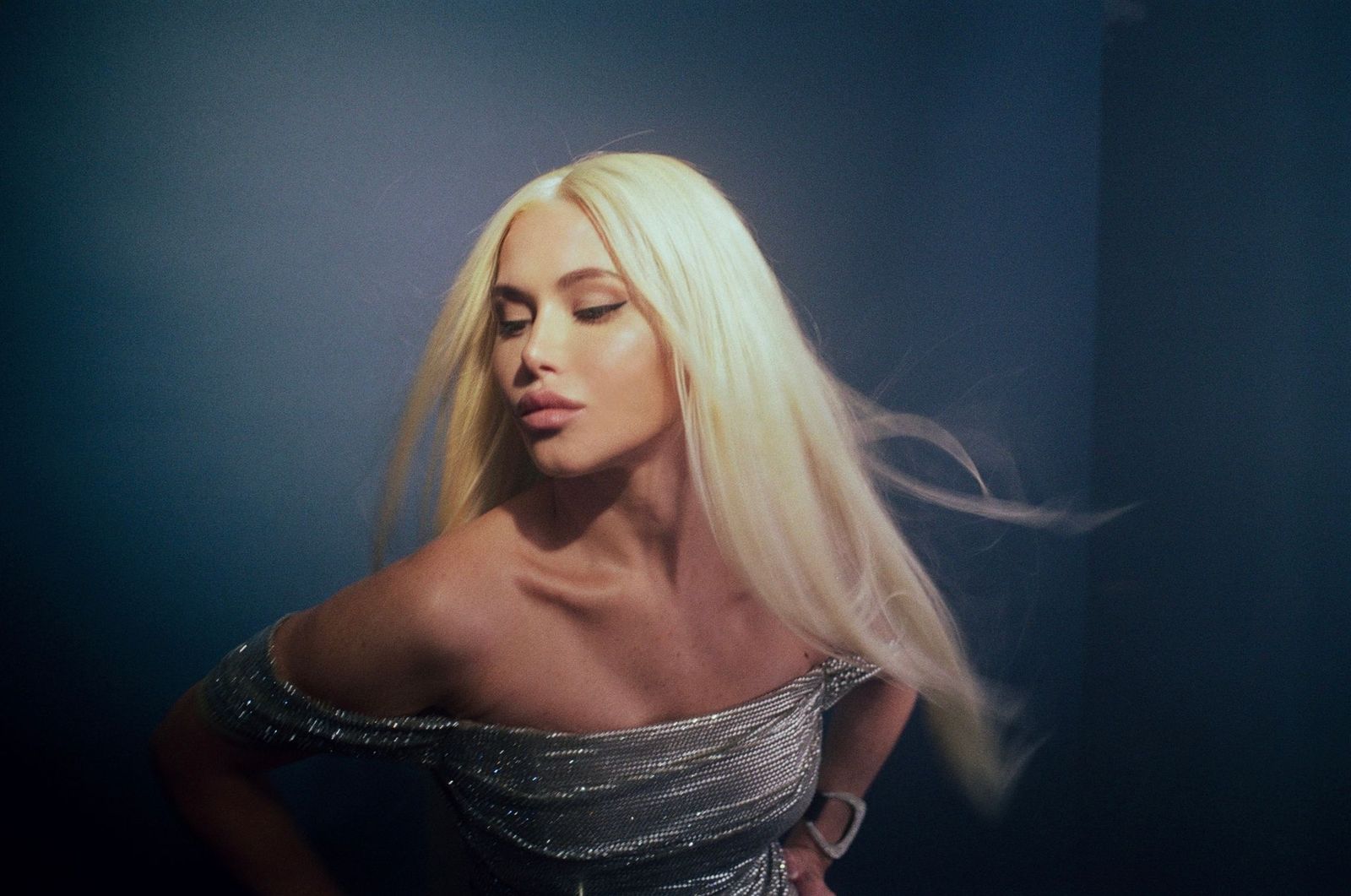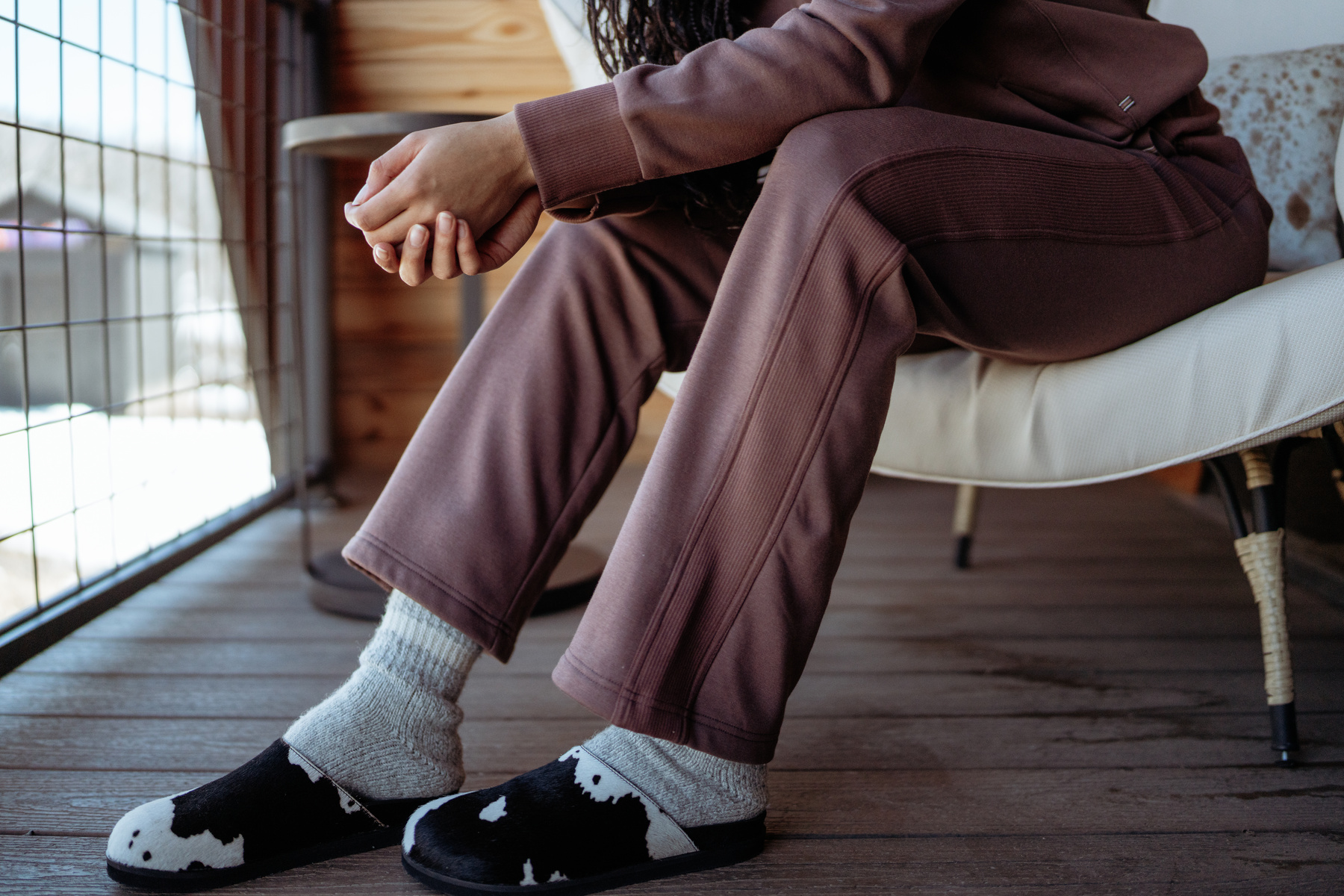
The dead-eyed smiles and carefully memorized PR-company-manufactured answers many musicians bring to interviews are nowhere to be seen when Jared & the Mill come to the Popdust offices.
Instead, the band, inspired by the boardroom setting, role play a business meeting, laughing as they pull out words like “synergy” and help themselves to cold brew and doughnuts. It’s clear the closest these men have ever gotten to a boardroom is binge-watching Mad Men on a tour bus, and they’re better for it: the room is suddenly spiritually transformed into a relaxed hangout with close friends — margaritas and barbeque wouldn’t feel out of place. They’re a perfectly cast folk-rock group, every member sporting a different version of the same intentionally scruffy aesthetic, but the titular Jared, in particular, sells the image of the touring honky-tonk star: with a swaggering confidence, ability to wear the shit out of a pair of Levi’s, and a mischievous twinkle in his eye.
He’s animated, explaining the abundance of jokes from the band with, “we’re actually a failing improv troupe, not a semi-successful band.” The five best friends and band members, Jared Kolesar (vocals, acoustic guitar), Michael Carter (banjo, electric guitar), Larry Gast III (electric guitar), Chuck Morriss III (bass), and Josh Morin (drums), exude the same warmth and familiarity that fills their infectious, lyric-driven, campfire-sing-along music.
The band, originally from Phoenix, have been touring for the better part of seven years. “It can get hard. It can be hard for sure, but it’s sort of a necessity at this point,” Jared explains. “Touring is how you make money in the music industry now. If you’re familiar, there’s not a whole lot of money in recorded music anymore, but there’s a lot of money in shirt sales, people need clothes.” Chuck adds, “I have a running gag with my dad that I don’t actually play in a band, I work for a mobile tee shirt company.”
When I ask if they’re tired of each other after all that touring, Mike says quickly, “Yes.” They all laugh in a “classic Mike” kind of way. “I’m kidding.” He continues, matter-of-factly, “We’re family. It’s like, yeah, we’re in it together. I think even if we weren’t doing this we’d still manage to be in each other’s lives somehow.”
Larry jumps in, adjusting his unironic trucker hat over his curly mop, explaining, “we grew up with each other. Josh and I, we played in bands from like seventh grade on. Then we tried to be in rock bands in high school, you know, go to shitty DIY clubs and shit.”
Mike breaks in seamlessly, as only someone who knows the other speaker very well can, “Jared and I went to middle school together too, and then Chuck and I have known each other for a long, long time. Our dads were in a band together.”
Larry continues, “and then eventually in college, we decided to take it up a notch and make a more…real band. And at first, it was just like a hangout type of thing, like in our rooms, just playing music and jamming. And then once we got towards the end of college, we all decided we really wanted to do this and we liked each other a lot. We started touring and just trying to make it happen on our own. And it’s been that way ever since.”
In the age of label manufactured music and artists, there’s something refreshingly organic about Jared & the Mill — even beyond their conception story and obvious intimacy. They found their voice through experimentation and combining the musical tastes of band members, resulting in a distinctive, genre-bending sound that’s difficult to categorize. Mike explains, “When Jared and I were in Middle School, Jared would be playing Blink 182, but also Simon and Garfunkel. So really it’s no wonder we’re a band that’s a combination of like Blink 182 and like…Bob Dylan.” Jared speaks to this authenticity, saying, “I think on this record specifically we really set forth with this notion of being a modern western band. A lot of times western bands feel more like a part of a costume party than something that’s natural. It’s like, okay, so you’re all just wearing big hats and pearl snaps, but it’s not real. We had this notion all along of like, how do we sound like us, but with music.”
Mike adds in, grinning, “like what country music would sound like on Mars.”
Josh speaks up, playfully adding to the metaphor, “we joked about like if you’re a honky-tonk band on a mining colony in like 2066, what would it sound like?”
Clarifying, Chuck says, more seriously, “like you know, there’s a banjo but there are also computers.”
But this computer element hasn’t always been present in the band’s music, and, considering that Jared & the Mill fans, for the most part, are won over by the bands rowdy and powerful live shows, I ask how they manage to incorporate more synthetic sounds without damaging the quality of their performances. Larry responds, saying, “I think there are a lot of cool textures there and it’s really interesting what sounds can be generated with computers. But the thing I think we want to retain is the human element, right? The fact that things are spontaneous on stage when they’re not tracked out. And so we always strive to, if we do include a synthetic sound that’s big and huge and modern, to still have it be played by humans.”
It’s clear that the whole band is particularly excited about the integration of this new sound on their latest album, This Story is No Longer Available, and they talk over each other for a moment, before Jared tries to sum it up. “We’re definitely not purists. We’re kinda down with anything. We’ll give it a shot. Why not?”
Chuck, responsible for executing these synth sounds when the band plays live, shares, “there’s a number of tunes on the new record where I was using patches that would normally be used on a trap song or something, like real subwoofery. Then he’s (Mike) playing Banjo over the top.”
When I ask if this is the direction they think the band will continue to move in, since it seems to have already begun to happen naturally, Chuck quickly stops me, “naturally, would be the key word there.” He says firmly, “I don’t think we’ve ever really set out with an intention to make anything sound like anything. It’s usually more like this is the song, then we kind of just throw parts at it until we find something we like and it kind of just…becomes.”
Larry, thoughtful and the most soft-spoken, says, “we try to make music we want to listen to. So we try to live in that sphere of like folk singer-songwriter construction with really cool other elements.” Everyone nods in agreement.
While it’s true that the group’s songs oscillate between different styles, what remains consistent throughout the band’s discography is the strength and poignancy of their lyrics. Jared, the primary songwriter, says his journey to this ability to express was out of necessity, “I started writing poems and stuff a long time ago. I had some issues as a kid, uh, just dealing with, you know, my self-worth and stuff like that. I felt weird bringing that problem to adults. I didn’t want to be added stress for my mom and dad or anything. So I internalized it and writing kind of became cathartic for me.” He pauses, suddenly serious, “It was just little scribbles on paper and stuff. It was never like, ‘this is my book of poems,’ but it kind of developed and I started playing violin.” He continues, ” I didn’t intend for it to develop into something. It was just kind of what I did.”
Riding this sudden openness, he goes on to elegantly explain why he and his four best friends chose a life of late nights, fast food, and music: “We’re starting to find this, this story within all of us, it’s this idea that everyone wants to be a good person. Everyone wants to feel like they have purpose, people hate feeling misunderstood and all anyone really needs these days is a little bit of community. We want them to come away from our shows seeing everyone that they may disagree with as a little bit more human.”
Later that day, standing in the crowded performance space at Rough Trade records, watching Jared temporarily alone on stage with his guitar as he sings the emotional “Chisel,” I recognize the vulnerability on his face. I look around the enamored crowd, beaming up at him as he sings:
“And all that I’ll find is a man at the center of my world
He looks just like me but isn’t all gone to hell in his eyes
The statue I carve in this marble is just one more chisel away
I’m just one more chisel away”
His emotional performance makes it clear the catharsis he found as a child by looking at the world through the lens of language is still there, perhaps even more so, and it seeps from him into the audience, quieting weary New York hearts. But just as easily, the band sends the room into a frenzy on their faster songs, and during “Broken Bird” no one’s too cool to stomp and whoop along. It’s this kind of audience connection the band prides itself on — whether in Brooklyn or Kentucky.
The climax of the night is when the band leaves the stage to make their way into the crowd, inevitably breaking the barrier between performer and audience. The crowd surrounds them excitedly, as the first notes of “Messengers,” their 2015 hit, play. Jared encourages the audience to put their arms around each other before he sings a lyric that perfectly sums up this band of joyful, wandering minstrels from Arizona: “Oh! Tell her I’m lost, but that’s alright.”
Brooke Ivey Johnson is a Brooklyn based writer, playwright, and human woman. To read more of her work visit her blog or follow her twitter @BrookeIJohnson.
POP⚡DUST | Read More…
Cboyardee: The Man Who Shaped 4chan
The New John Wick: Chapter 3 – Parabellum Trailer is Literally the Second Coming
